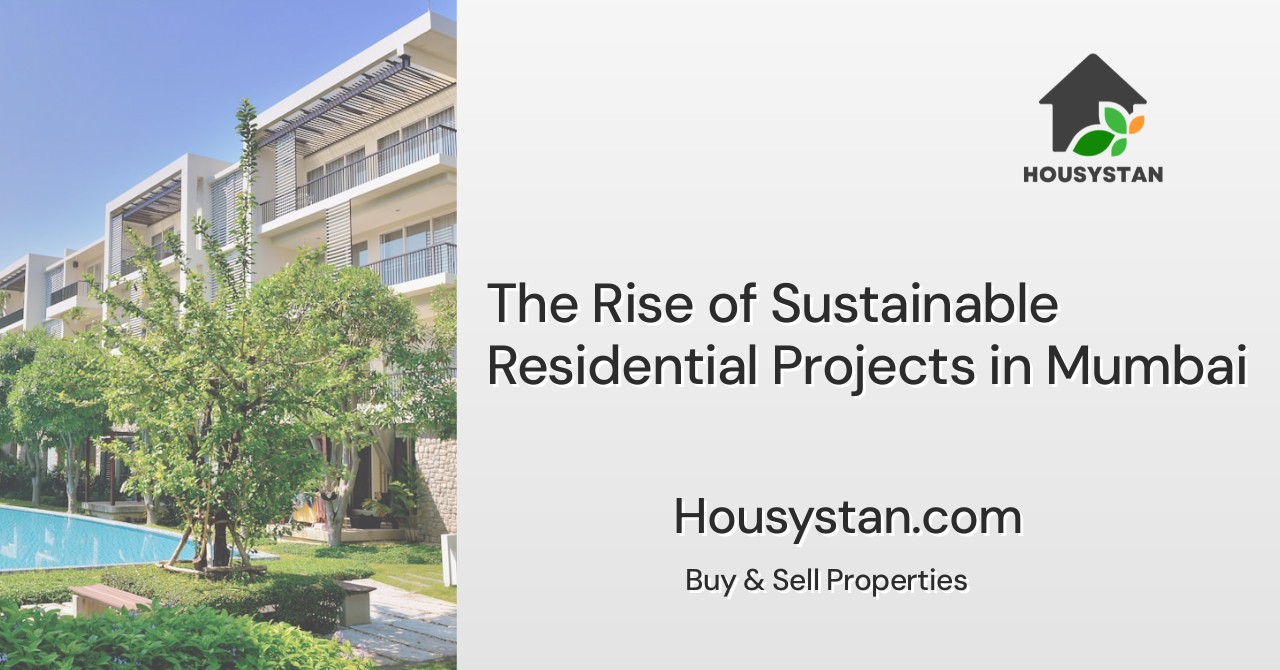The Rise of Sustainable Residential Projects in Mumbai
Read latest blogs and articles from Housystan

The Information mentioned here was last updated on:
29/1/2026The Rise of Sustainable Residential Projects in Mumbai
Mumbai, the bustling financial capital of India, has witnessed a significant transformation in its real estate landscape. In recent years, the demand for sustainable residential projects in Mumbai has surged as homeowners and investors seek eco-friendly living spaces that promote environmental responsibility. This shift reflects a growing awareness of the impact of urbanization on the climate and the urgent need for greener construction practices within the city.
Developers across Mumbai are now prioritizing sustainable features such as energy-efficient lighting, rainwater harvesting systems, solar panels, and green roofs in modern housing complexes. These innovations not only reduce the carbon footprint but also lower utility costs for residents, making them an attractive choice for environmentally conscious families. In popular neighborhoods like Andheri, Powai, Bandra, and Goregaon, new residential developments are being designed with sustainable architecture at the core, ensuring minimal environmental disruption while maximizing natural ventilation and daylight.
- Verified Tenants/Buyers
- Unlimited Property Listing
- Zero subscription/charges fee
Government initiatives and regulations have further propelled the adoption of green building standards in Mumbai. The Maharashtra government’s push for IGBC and GRIHA certifications has encouraged builders to incorporate eco-friendly materials and construction techniques. As a result, the city now boasts several award-winning residential projects that set benchmarks in sustainability and urban planning.
For homebuyers and investors, choosing a sustainable residential project in Mumbai means enjoying healthier indoor environments, enhanced property value, and a positive contribution to the city's long-term well-being. Many upcoming projects in areas like Thane, Navi Mumbai, and Mulund offer green amenities such as landscaped gardens, waste management solutions, and electric vehicle charging stations, catering to the evolving preferences of the modern urban dweller.
In summary, the rise of sustainable residential projects in Mumbai marks a progressive shift towards responsible development and eco-friendly living. As the city continues to grow, adopting sustainable housing not only benefits residents but also helps preserve Mumbai’s unique ecological balance for future generations. Homebuyers looking for value, comfort, and sustainability will increasingly find Mumbai’s green residential projects to be the ideal choice for a modern urban lifestyle.